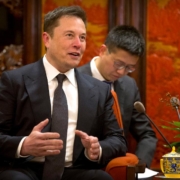How The Pandemic Is Changing The Face Of Customer Experience
Chief Information Officer at TELUS International, a global customer experience provider powered by next-gen digital solutions.
Customer experience is ultimately built on customer expectations. Companies must understand what consumers expect from their brands, which includes customer support that, at a minimum, meets their needs but ideally surpasses what they’ve anticipated.
With the global pandemic affecting all aspects of our everyday lives, this is easier said than done. The restraints and limitations in place to protect our health and well-being mean that companies must find new and innovative ways to deliver on their brand promise if they are to remain connected to their customer base. Although a daunting scenario, it’s also a unique opportunity to reframe their customer delivery model.
By rising above their traditional customer service, investing in digital solutions and reinventing their internal processes, brands can strengthen their connection with consumers. By the same token, they must make sure they don’t disappoint them in an age when change is everywhere and reliability is a must.
A Tale Of Two Services
I recently experienced both a good and a bad brand experience and witnessed the benefits of tech-driven customer service firsthand. The first interaction came when I decided to add a radio subscription service to my car. I’d always had a positive experience with my premium car brand and expected the same this time around. But when I got to the dealership, what should have been a quick and easy visit turned into a month long ordeal.
During this time, the dealership failed to maintain communication and update me on the status of my installation and the parts it had ordered. What I did get was a promotional email inviting me to spend more money on additional products. It was clear that while the dealership had the means to stay connected with its customer base, it wasn’t taking advantage of that same technology to update its customers on the progress of their services.
With that experience in mind, you can imagine how I felt when, a few weeks later, I needed to visit the Department of Motor Vehicles. It’s no secret that the DMV has a subpar reputation when it comes to customer service, and with reduced staff and physical distancing measures to contend with, I expected the worst.
To my surprise, the experience couldn’t have been better. Prior to my arrival, I checked in online and was greeted with an intuitive website that walked me through the required documents and let me schedule my appointment. The day before, I received a friendly text and an email reminder with a QR code. When the time came to go in for my appointment, I was in and out in 10 minutes. This shows that when combined with good customer service, technology can make even the most complicated of experiences simple and painless.
Technology Can Help If You Let It
So, how can brands follow in the DMV’s footsteps to ensure they exceed their customers’ expectations during the time of Covid-19? The answer is clear: Leverage technology in the right ways to streamline your customer service.
Embrace High Tech, High Touch
To satisfy customers, companies should combine high tech with high touch, maximizing digital tools like machine learning and personalization to create more customized, effective interactions with customers. Investing in data and technology provides businesses with more in-depth information about consumer preferences and behaviors, which makes it easier for you to provide service that satisfies.
At the same time, it’s important to provide that coveted “human touch.” Show empathy when engaging with customers to demonstrate your concern for their health, safety and well-being. Remember that due to physical distancing, the conversations your employees are having with customers may be the only human interactions they’ve had all day.
Improve Efficiency
Whether or not your products are deemed essential, you can bet consumers will appreciate the brands that address pain points to create a seamless customer journey. And when it comes time to prioritize efficiency, artificial intelligence and bots can help you reduce in-person contact time and ease the customer service process.
According to research conducted by Gartner, 25% of customer service operations will involve virtual customer assistants or chatbots by the end of this year as businesses continue to realize their value. Tasking bots with answering simple and repetitive questions, scheduling appointments for your customers and providing product- and service-related updates improves communication and frees up your agents to address more complex and nuanced queries.
Reassess Your Services
There are many additional ways that companies can help their customers during the pandemic, so ask yourself whether you’re providing the best experience possible. Knowledge bases for FAQs and using digital technology to allow customers to book reservations, deliveries and curbside pickups online are just a few ways you can assist your customer base while also sustaining your business.
For example, grocery store chain Kroger has embraced data and personalization and introduced expanded home delivery through partnerships with online grocery delivery services. My company, TELUS, has begun offering additional installation options for its services. These include the ability to converse with a technician via video call so that customers can receive the same professional help they expect from the brand while respecting physical distancing measures.
As Gartner reports, many brands have reassessed their customer experience delivery over the past few months, introducing new services ideally suited to the new retail reality. “Brands that proactively help people in a time of crisis can ensure healthy customer and employee relationships,” writes Augie Ray, Gartner’s vice president analyst.
Nobody was truly prepared for the all-encompassing impact of Covid-19, but that doesn’t mean customer service has to suffer as a result. The customer experience is changing by necessity, but take it from me and the DMV: The businesses that push themselves to do better are certain to stand out and reap the rewards over the long term.
Forbes Technology Council is an invitation-only community for world-class CIOs, CTOs and technology executives. Do I qualify?
Chief Information Officer at TELUS International, a global customer experience provider powered by next-gen digital solutions. Read Michael Ringman’s full executive
…










